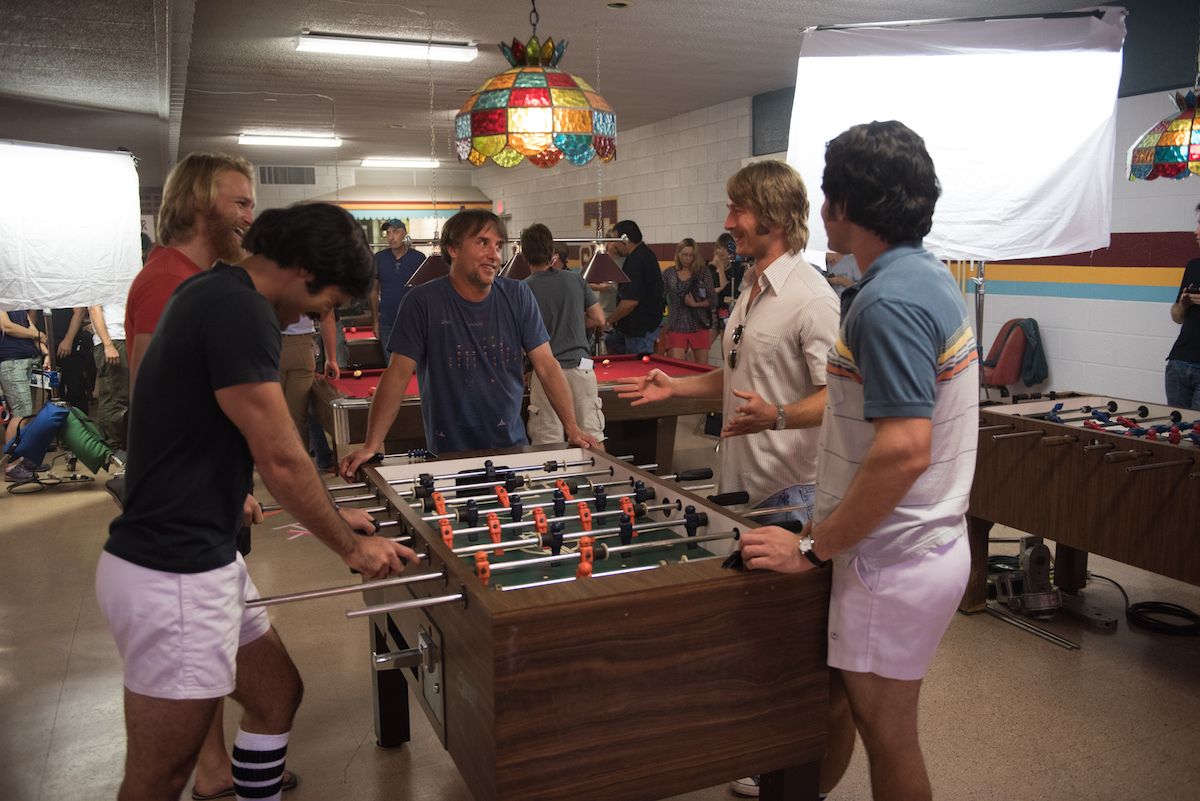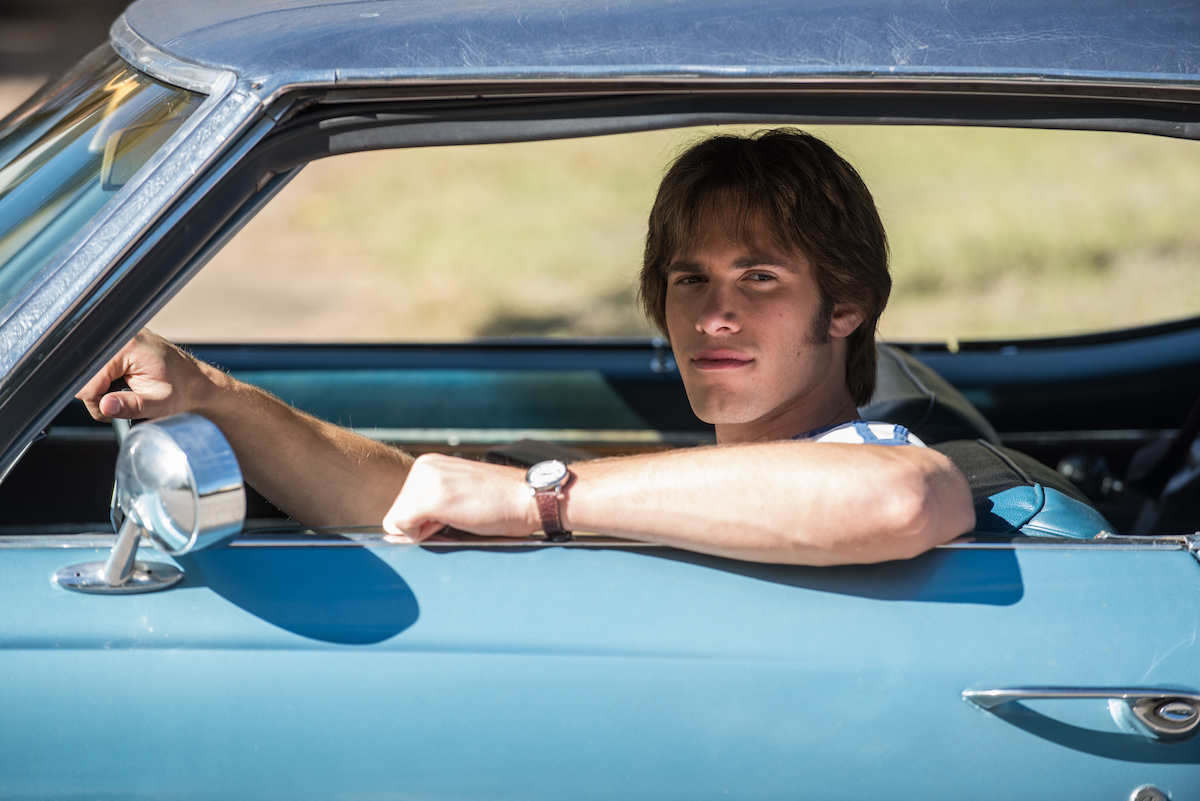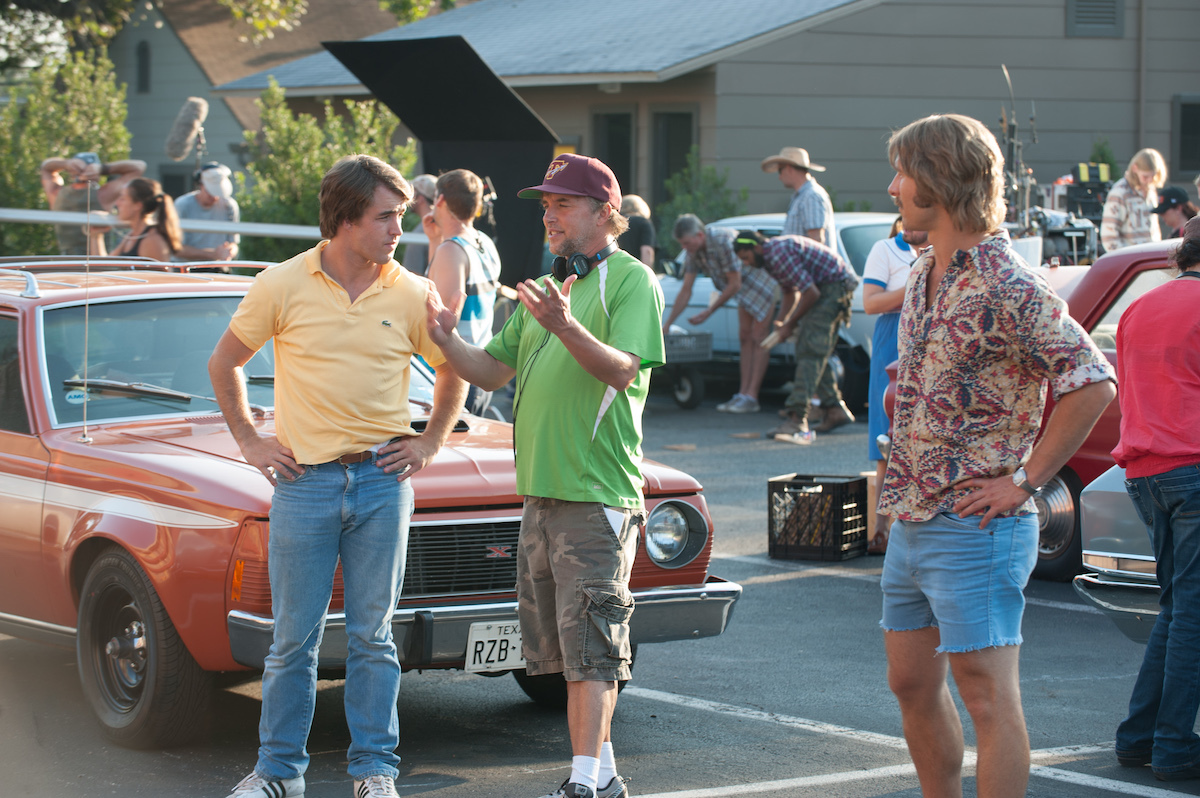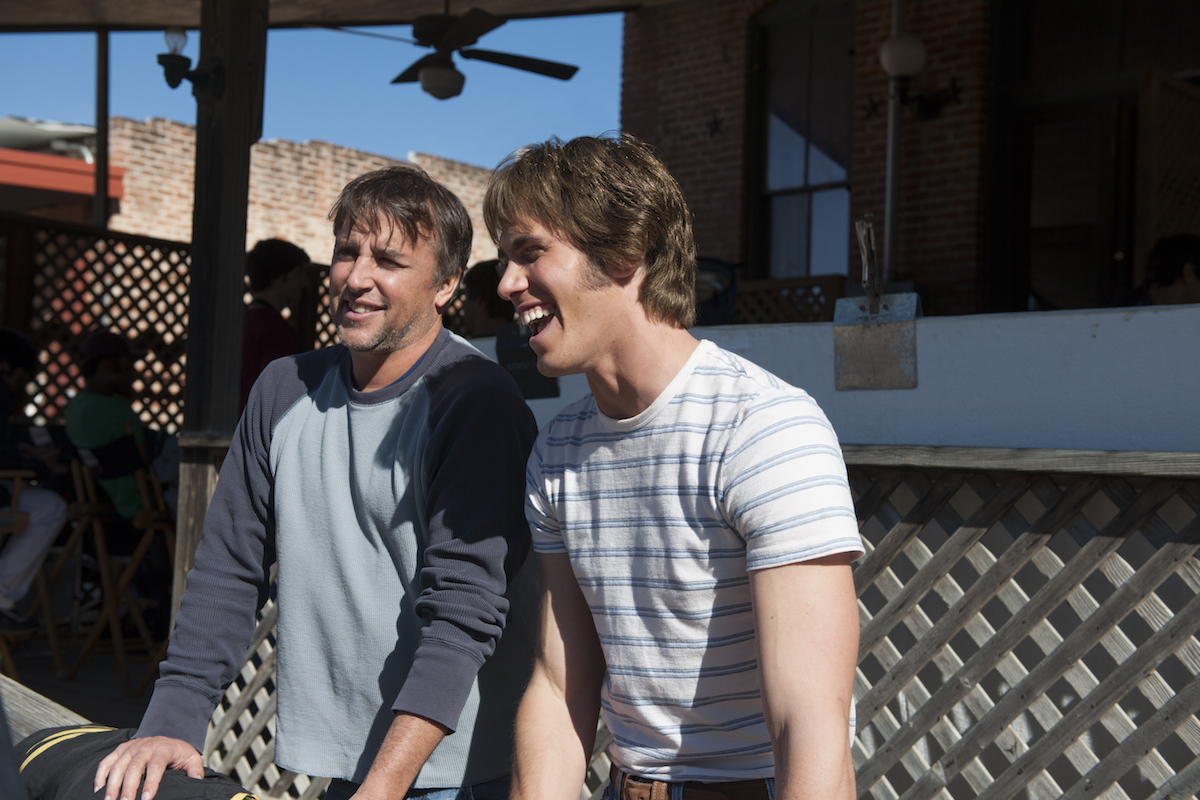The ‘spiritual sequel’ to Richard Linklater’s Dazed and Confused is here, and it doesn’t disappoint. The setting: college in the 80s. The characters: a bunch of beer-guzzling baseball bros. Like Dazed, the jocks in Everybody Wants Some!! aren’t saddled with stereotypes. They smoke weed, they read Kerouac, they go to punk shows. In other words, they’re not the complete assholes we’re accustomed to seeing on the big screen. And Linklater should know; he used to be a jock. He played on a college baseball team in the early 80s, and it’s his memories of those years that anchor this deceptively personal — and original — comedy.
When I met Linklater recently, we spoke about his own jock days, how the film depicts a kind of socialization that’s disappeared due to technology, and how your connection to the music you love is never as strong as when you’re young. Oh, and how he’s learned to love disco.

The jocks in Everybody Wants Some are kinda interesting guys; they read Kerouac, they’re goofy…
Yeah! As a former jock I’m proud to show that. Because very few jocks end up making movies. Jocks are usually represented by the nerd guys who typically think, ‘Oh, all those guys are assholes.’
So you wanted to dispel those movie clichés of jocks?
Yeah, especially from that era. Back then it was kinda cool to be a jock; there were some famous athletes who were very thoughtful, they had taste. I remember the basketball player Kareem Abdul-Jabbar hosted a jazz show, Wilt Chamberlain was a gourmet cook. It was cool to be a jock with other interests. Now they’re all kind of brands I think; it seems really eccentric like, oh, he surfs too! But they’re people. You can’t help it if you’re good at a sport and you focus on it.
You’ve said it’s autobiographical, so I’m guessing you were Jake, the more quiet-type jock?
I think so. The guys tell me — my former teammates — they’d say, ‘We knew you’d do something like this; you were reading all the time, you had your music, you were always lecturing us on Ray Davies or something.’
You’ve described the film as a spiritual sequel to Dazed and Confused. Do you see these characters as slightly older versions of those characters?
Just the Mitch Kramer character from Dazed, really. It’s kind of like, when you go off to college you leave all that behind. It’s a spiritual sequel in that it leaves high school for college. So chronologically it would be Mitch, four years later. In that movie he’s a pitcher, he’s in a baseball game right before he gets paddled. So imagine if he kept playing ball, he was good enough, and four years later he transforms into Jake and goes to college. That was the entry point for me.

If this college life follows the high school life of Dazed, then could you see Slacker as what follows college, looking at the overeducated, jobless twentysomethings? To me it almost feels like a trilogy: high school, college, post-grad life.
[Laughs] Yeah, there’s definitely a few things in there. That’s kind of where my own filmmaking catches up with the time period. It’s strange, like, I was making films by the late 80s, I had something to say about the world back then; I don’t have to go back in time and make a movie about it, I was there.
College in the early 80s looks especially fun.
It was a great time and I think I got lucky; it was pre-AIDS, pre-Reagan, pre-Bush — the next 12 years were bad. But the moment that I was out in the world, seemingly as a free adult, the culture itself was very open.
Are you nostalgic for those years?
I’m not personally nostalgic; I wouldn’t want to go back to it. I think the film depicts — and I’ve noticed this with young people — it depicts a socialization that’s gone now due to technology. As much as technology keeps us interconnected, it also takes away from the moment. People hang out less and they hang out differently. Five guys in a car driving from point A to point B, cranking up the music — it became a thing. Now you’ve got a driver and everyone else is [pretends to type on a phone] doing something. You’ve learned to fill that nothing time with something. It’s kind of a distracted, not-in-the-moment kind of thing.
The film shows how divisive disco was (and continues to be). Did you listen to it back then?
I think we all did, socially. That’s where the girls and the drinks specials were. But you would never claim to like disco music. I said to my cast, ‘Don’t ever forget: you don’t like this; this is shit!’ But history has been good to it; I like a lot of it now more than I did then. If I came across The S.O.S. Band’s Take Your Time (Do It Right), I will listen to that more than The Eagles’ song that I’ve heard 98,000 times on the radio.

The guys in the film attend a punk show too, so you show how those boundaries were blurred at points.
Yeah, you were a free agent to float wherever. Sometimes you felt a little out of place of course. In the film you see them actively trying to fit in; before they go to the punk show they roughen up their look. And I remember doing that; I didn’t have the hair or the clothes necessarily. I visited this friend and we were going to this punk club and he gave me a couple of things to fit in. I wore a little thing around my neck.
Did you feel totally out of place in the punk scene?
I felt a little self-conscious but I went with it. I was like: ‘No one gives a fuck about you!’ It’s like dancing: you don’t have to be a good dancer but if you look comfortable, you qualify. As long as you don’t seem self-conscious about it, you can get away with damned near anything. Just own it.
Did you have reference points for the clothes the guys wear?
Oh loads. We’d look at yearbooks from college and high school. You go: ‘oh yeah, I remember those.’ It’s really fun to work with your costume department and hair and get all those details exactly right. We looked at movies from 79 and 80, particularly comedies like Meatballs. I also showed the cast films that I just remember liking a lot, like Breaking Away, the cycling film. It’s a college movie, a comedy, and a coming-of-age film.
The music is so important in the movie; you used Devo, some new wave bands and a mix of genres. What role did it play for you?
Well I’d say 100% of the time we were in our house the stereo was on. You get in the car, the stereo was on. You go to the game room, the radio’s on. The stereo was always on. Music was everywhere in your life. It’s important. It defines you. It bonds you with others.
Do you still have that connection?
It’s never as strong as when you’re a young person. You get older and you get a bit more nichey. Back then was the last time I felt like my life was infused with pop culture, too, like those were hits at that time. Moving into the 80s I had more of an underground sensibility because the 80s were so ugly to me. I eventually quit listening to the radio because I wasn’t enthused about much of it. I’m still catching up with the 80s I missed.
Credits
Text Oliver Lun
